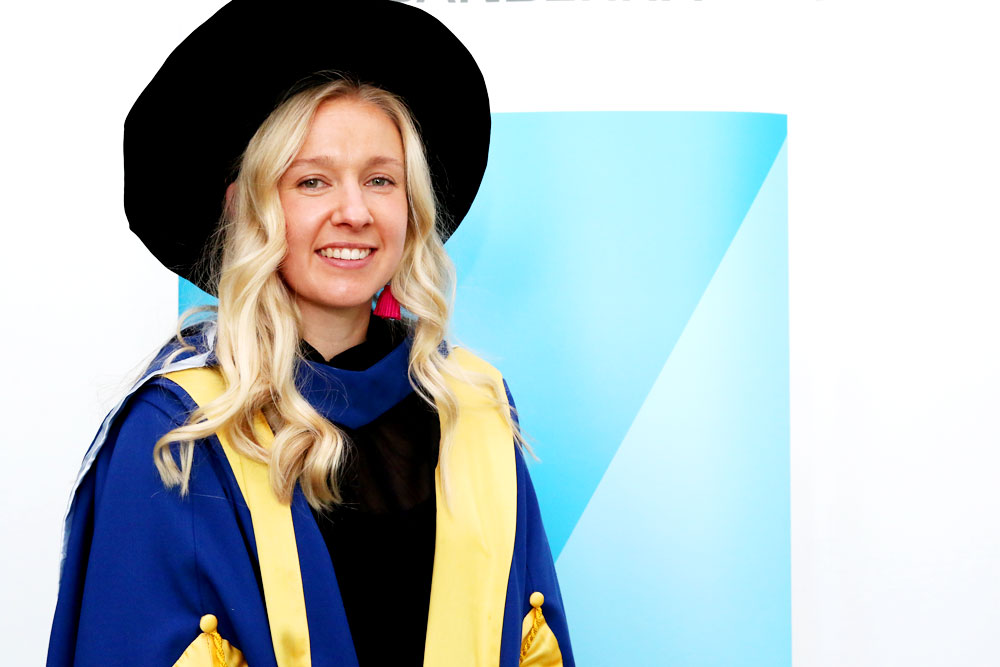Marcus Butler
29 September 2017: Changing the time and type of training amateur athletes undertake could help them produce better results, according to world-first research by a University of Canberra Doctor of Philosophy graduate.
Dr Kristy Martin’s thesis examined the effect mental fatigue can have on physical performance.
“My research looked at both professional and recreational athletes, mainly cyclists, and the impact mental fatigue has on anaerobic exercise,” Dr Martin said. “That’s the short, explosive bouts of movement and exercise like sprints, which are critical for most sports.”
Her study was the first in the world to examine the effect mental fatigue has on elite athletes, as well as the first to directly compare cognitive performance between professional and recreational athletes.
“We know from previous research that mental fatigue can impact a person’s ability to undertake endurance exercise, but my study on anaerobic exercise found no noticeable difference in capacity between people who were mentally fatigued and those who weren’t.”
Dr Martin’s comparison of elite and amateur athletes found that recreational cyclists who were mentally fatigued had less power and lower speed overall compared to elite cyclists in the same situation.
“This suggests that successful athletes are better able to focus on relevant details and ignore the irrelevant. Basically, elite athletes are better able to focus on the task at hand and are less likely to become mentally fatigued.”
Dr Martin said exercise and training schedules for amateur athletes could be adapted to improve their performance.
“Given mental fatigue hinders people’s ability to perform endurance exercise but has no impact on short, high intensity exercise, you should look to do endurance exercise first thing in the morning, and save resistance training or anaerobic exercise for later in the day.”
Dr Martin is continuing her research work at the University. She is part of a University of Canberra team that will advise the Australian Army on how to best prepare soldiers for front line combat. The work will inform the newly-formed Human Performance Research Network (HPRnet) and is aimed at enhancing the performance of Australia’s military personnel.
Dr Martin said she felt proud to be graduating and have her work published.
“It’s also very exciting to see some of my findings being put into practice in our work with the HPRnet.”
Read more coverage from the University of Canberra's most recent round of graduations:
Vitamin B key to reducing likelihood of Alzheimer's disease
Gender equality advocate chalks up another victory
Chancellor confers daughter's degree



